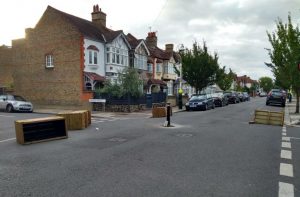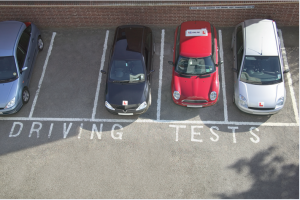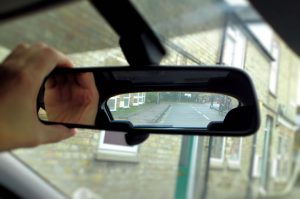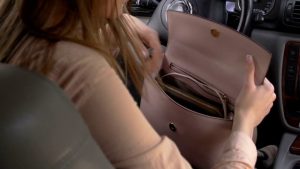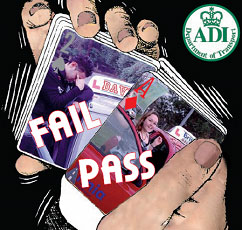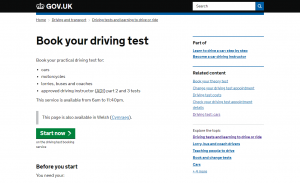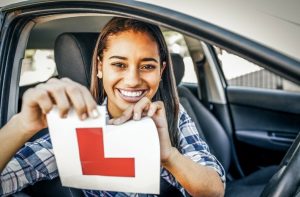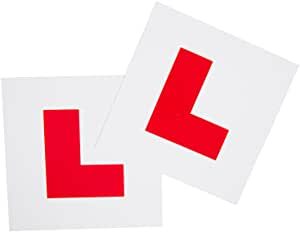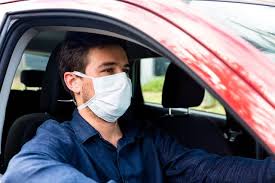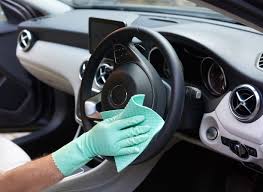Update on lockdown measures in England |
| Following the announcement on Saturday 31 October 2020 around further lockdown measures being introduced in England, we are working closely with the Government to agree the impact these will have on DVSA services. All driver and rider training and tests will be suspended in England from 5 November until 2 December 2020. We will be contacting affected test candidates soon. We’ll keep you updated on the situation and provide further guidance when we’re able too. |
November 2, 2020
November 2, 2020
Will Driving Lessons go ahead in the November Lockdown?
After Saturdays announcement by Boris Johnson on the second National Lockdown in England from Thursday 5th November 2020 to Wednesday 2nd December 2020, what does that mean for driving lessons and driving tests?
A: We are awaiting information from the DVSA, as soon as we receive this we will communicate this on our website and to our Driving Instructors
A: It is currently unknown, as above, we are awaiting information from the DVSA. Please keep an eye out for emails from your booking.
A: It is currently unknown, as above, we are awaiting information from the DVSA with regards to Practical Driving Test. Please keep an eye out for emails from your booking.
A: Yes, we are still taking bookings and our Driving Instructors will remain teaching driving lessons, whilst we await confirmation from the DVSA that we can continue.
A: Yes! Like with the first Lockdown our lovely customer service advisors will be working to help our Instructors fill their diaries and ensure you can learn to drive as soon as possible.
A: During the first lockdown driving lessons and driving tests did continue for essential workers, whilst they were cancelled for everyone else. We will update you with confirmation on this when we hear from the DVSA.
A: We recommend that you speak to your Britannia Driving School Instructor, we will keep them updated with the latest information from the Government and DVSA. And please check your emails regarding your booking.
A spokesperson for the Agency said: “We are working closely with Government to agree the impact of the lockdown in England on DVSA services.
“We will update customers as soon as possible.”
The DVSA will contact you directly if your test is affected by local restrictions in England and Scotland.
October 29, 2020
War veteran driving instructor ‘has to stand in rain’
A disabled war veteran driving instructor said he has been repeatedly forced to sit outside during wet and windy weather because of the closure of test centre waiting rooms.
Andy Small, from Cornwall, said blanket national closures due to Covid-19 were “ridiculous”.
“All instructors now have to sit or stand, outside, for up to 40 minutes while tests take place,” he said.
The Driver and Vehicle Standards Agency said it was reviewing the situation.
Mr Small was medically discharged from the army in 2010 and has rheumatoid arthritis.
He served in the Gulf War, completed two tours of Bosnia and was awarded the Royal Warrant in 2005.
He said he could not stand for long periods so when pupils have been taking their tests, he would be sitting in the car park in a camping chair, holding an umbrella.
“The inclement weather conditions will only deteriorate over the coming months,” he said. “There is no cover.
“A number of instructors have underlying health issues which will be made worse.
“This will lead to many experiencing a physical and financial difficulty because they’ll become ill and need time off to recover.
“Now a tiered lockdown has been introduced across the country, surely test centre waiting rooms should be reopened using a similar approach?”
He said it was ridiculous to have a blanket closure when “some areas of the country are at lower risk than others”.
Mr Small said he wanted the DVSA to look at waiting rooms based on the size of the test centre.
“We have five examiners covering Bodmin and can maintain social distancing guidelines with no difficulty,” he said.
“The examiners can sit in our cars, inches from strangers, but we’re not allowed to be in a waiting room that can accommodate us with social distancing.”
The DVSA said it was working with the Health and Safety Executive and driving instructor associations to ”review our centres”.
“We are initially reopening nine waiting rooms and to ensure everyone’s safety we will review the measures we put in place and get feedback from staff and our waiting room visitors before we open anymore,” it added.
Bodmin test centre is not one of the nine. Our automatic instructor Jane has said its very difficult in some of these treacherous weather conditions if there is no cafe nearby, to seek shelter with a warm drink.
October 8, 2020
Overturned planters and oil-slicked roads: low-traffic neighbourhood backlash
In Ealing, frustrated drivers overturned heavy wooden planters – even daubing them with the words: ‘abuse of power’.
Other disgruntled locals have resorted to pouring oil on spaces left for bikes to pass through, making riding conditions unsafe for cyclists.
In the past four months, 200 locations have been earmarked for a “cost-effective way of delivering safe and attractive streets for walking and cycling” – with 141 of the zones found in London.
Fears are growing that the sudden installation of low-traffic neighbourhood (LTN) schemes during the coronavirus pandemic are inciting ill-feeling between local residents.
Protests have been held in Ealing, Wandsworth and Islington, with residents in Hackney set to follow suit. Meanwhile, petitions demanding the removal of LTN schemes have attracted hundreds of signatures.
Giulio Ferrini from walking and cycling charity Sustrans said: “Lots of people understandably don’t want to travel on buses and trains during a pandemic so there’s a real risk those with cars will just drive more, causing gridlock and adding to dangerous levels of pollution, unless councils provide viable alternatives by making walking and cycling safer. This is what low-traffic neighbourhoods can do.”
Claire Holland, Labour deputy leader at Lambeth Council said: “It is a culture war between those who want to drive wherever they want, whenever they want, at whatever speed they want – compared to the right of everybody else to get around peacefully and effectively.”
Residents involved in the One Oval group, which protested against a local LTN scheme, argue that the roadblocks displace traffic to less prosperous areas with already heavily-polluted roads.
Sam Cooray, who lives on the border of a LTN, says advocates of the scheme “are not representative of working classes, of BME communities, of the disabled, of local businesses.”
People on both sides of the argument claim they have been bullied and intimidated online as tensions continue to escalate.
RAC head of roads policy Nicholas Lyes said:
“Nobody can deny that low traffic neighbourhoods are well-intentioned and there are doubtless some well-designed schemes which have widespread local support due to the valuable benefits they are delivering. Unfortunately, it also seems there some schemes that aren’t working well and are causing problems for residents, drivers and businesses.
“Rather than just ignoring these issues, authorities should be willing to listen to everyone affected and make changes to rectify them. Councils should also be actively looking at impact assessments and monitoring all schemes to ensure that unintended consequences – such as increased congestion and displaced traffic, worse journey times, increased difficulty for delivery drivers doing their jobs and access problems for emergency vehicles – are properly understood and avoided.
“The fact that the Goverment gave authorities just weeks to introduce schemes for the reallocation of road space is a reason why some schemes aren’t working. Councils were told they did not need to consult – yet if they didn’t take the cash on offer, they risked missing out on it altogether.”
“As the lockdown has eased, councils now have an opportunity to consult properly and we believe the Government should require that they do so for new schemes. This is important so local authorities can understand the impact that schemes will have on all road users and residents, and can improve the design of any new scheme accordingly.
“We know that safety concerns remain a barrier to getting people out of their vehicles and on to two wheels so there’s also an argument for local authorities to look at spending some of this money on areas which cause the greatest safety hazards for cyclists, namely junctions and roundabouts. By tackling these, more drivers may be encouraged to use bicycles for some of their shorter journeys.
“Councils should also be considering how they can reduce through-traffic into towns and cities. We believe there’s an urgent case for creating more park and ride-type facilities, potentially taking advantage of not just buses but cycling, walking and scooting. Electric bicycles, and if fully legalised electric scooters should also be offered at such facilities to maximise options for those open to using such schemes.
“Managing road space is an extremely difficult job for urban planners, but in order to bring about lasting benefits for all, it’s essential any changes take proper account of the needs of residents, businesses and road users.”
Modelling by King’s College London on the UK’s first LTN which started in 2014, found the scheme has boosted life expectancy and air quality, without pushing up pollution on main roads.
Do you live near an LTN or similar traffic diversion sceme? Share your experiences in the comments below.
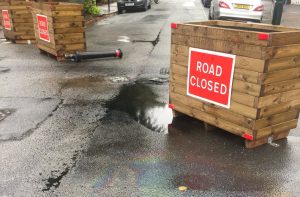
September 16, 2020
How long does it take to become a bad driver after passing your driving test?
A survey shows drivers forget to wear seat belts after only four months of driving.
It takes motorists just 10 weeks to become a “bad driver” after passing their test, according to a new poll.
A survey of 2,000 car owners found the average new road user lets bad habits creep in less than three months after ripping the L-plates off.
And one in 10 admitted they began to forget what they learned two weeks or less after passing their test.Not holding the steering wheel in the correct ‘10 to 2′ position and failing to check their mirrors every time they make a manoeuvre were among the earliest flaws to emerge, while 40 per cent of women believed they had developed bad habits since passing their test, compared to just 32 per cent of men.
The study found women admitted one of their biggest flaws was reaching into their bag to rummage for something while men confessed to tailgating and even running a red light days after passing their tests.
“Passing your driving test is, for many people, one of the hardest things they’ll ever have to do,” said David Carter for Accident Advice Helpline, which commissioned the research. “And for many of us, that testing day could have come years or even decades ago – plenty of time for bad habits to creep in.
“Lots of drivers are happy to admit to bad practices when behind the wheel, most of which are harmless. But it’s important to stay vigilant with observation and safety, as letting your guard down for too long could result in an accident.”
The survey found on average it takes just four and a half months to become a “middle-lane hogger” on the motorway, while others admitted to putting their safety at risk by driving without a seatbelt on the odd occasion, less than four months of having their full licence.
The poll also showed it takes just over five months for drivers to feel comfortable fumbling in their bag for something while driving.The average driver will have run a red light within five months and six days of passing their test, while illegal U-turns take place after five months and nine days.
Fifty-three per cent of respondents agreed that they have more bad driving habits now than the day they passed their test.
David Carter added: “Bad driving habits can compromise safety and the research suggests it’s all too easy to let our driving standards slip.”
September 2, 2020
How many Test centres are there in the UK?
LEARNERS can now book driving tests again following the hiatus caused by the coronavirus lockdown.
But how many driving test centres are there in the UK?
There are about 380 driving test centres in the UK.
Some operate part-time, but most operate full-time.
If you’re in England, Wales and Northern Ireland, you can now book a driving lesson as the website reopened on Wednesday, August 26.
Each driving test centre has unique driving test routes that are planned by the examiners around the respective local areas.
Test routes will vary dramatically depending on where they are located – with city dwellers more likely to have harder routes because of busier roads.
How do I find my nearest test centre?
Finding your nearest driving test centre is easy.
If you are learning with an instructor, speak to them about your nearest and most suitable test centre.
You can also check which test centres are closest to you using the gov.co.uk website.
When you’re learning to drive, it would be a good idea to practice on the routes which your test centre uses – so that you can become accustomed to the roads.
Which driving test centre has the highest pass rate?
According to DVSA data examined by Driving Test Tips, these are the test centres in the UK with the highest pass rates.
Gairloch Driving Test Centre in the Scottish Highlands is statistically the top pass rate centre – with 86.5 per cent of learners passing their tests.
Nine of the top 10 test centres based on pass rates are all in Scotland or the Highlands – including Mallaig, Isle of Tiree, Inveraray, Ullapool and Islay Island.
Which driving test centre has the lowest pass rate?
Test centres in busy cities such as London often have lower pass rates compared to those with less traffic density and less complicated roads and traffic system.
The driving test centre with lowest pass rate in the whole of the UK is in Birmingham, The Pavilion – with a pass average of 28.6 per cent.
Speke in Liverpool has the second-lowest rate, followed by Birmingham South Yardley and Erith in Kent.
Comments(0) August 26, 2020
Driving test chaos as website crashes AGAIN as 100,000 people queue to book online
THOUSANDS of learner drivers were struggling to book their driving test this morning after the DVSA website crashed again.
More than 100,000 people were placed in a virtual queue after more driving test slots were released today.
Learners had complained that the website was still crashing for them shortly after it reopened after 8am this morning.
The Driver & Vehicle Standards Agency (DVSA), which is in charge of booking driving tests, says the website is now working – but with the queuing system in place.
It comes after the DVSA website also crashed on Friday as it opened for the first time since the coronavirus crisis.
The government suspended driving tests on March 20 as the UK was gripped by the coronavirus pandemic.
Frustrated learner drivers joked the DVSA could “keep their licence” this morning after struggling to get online.
One tweeted: “Just gone to book my driving test to be in a queue with 73,000 PEOPLE, just keep my licence who can be arsed.”
Another said: “Just logged onto the driving test… I have 105,092 users in front of me in the queue…”
A third tweeted: “Probably the longest queue I have had in my entire life 99,606. Wish me luck.”
A fourth said: “Nothing like spending four days doing maintenance on your site, only for it to crash 30 seconds after re-opening. Cracking effort.”
Another tweeted: “Absolutely ridiculous service DVSA wasted 12 hours of my time trying to book a driving test on Friday and Saturday, then closing the website until today for ‘essential maintenance’ yet all the website still does is crash!”
When Britannia Driving School tried to access the DVSA website this morning, we were placed in a queue with 192145 people ahead of us.
The DVSA is only releasing limited driving slots so that learners and examiners can comply with social distancing restrictions.
It confirmed in a tweet that it had 35,675 tests available over the next 6 weeks, but it’s not clear if the DVSA is offering spaces beyond this timeframe.
The DVSA was supposed to release more tests this Monday, August 24, but it pushed the next batch back until 8am today due to “unprecedented demand”.
It said “essential maintenance” was done over the weekend to help the website to cope with the number of bookings.
Those who had their driving tests booked before lockdown measures were introduced were allowed to rebook from July 25 to help with the backlog.
The theory tests resumed on July 4.
The DVSA apologised to those who were struggling to get online in a tweet this morning.
It tweeted: “Driving test booking service update.
“For those who have experienced a problem with getting into the booking system, please try again.
“You should now be able to get into the booking system queue. Sorry for any inconvenience.”
Comments(0) July 22, 2020
Driving Tests restart today in England .
LEARNER drivers in England are able to take their tests again from today – but it won’t be the same as before. Driving tests were suspended in March at the start of lockdown to help stop the spread of the deadly covid 19.
Lessons and theory tests were allowed to restart in England from July 4th but learner drivers have been forced to wait two more weeks to take their practical. Easing lockdown measures is a matter for devolved governments so car practical tests won’t go ahead in Wales until August 17.
Dates for when tests can start again in Scotland and Northern Ireland haven’t been confirmed yet.
Those who had their tests cancelled due to lockdown will be prioritised to clear a backlog of Brits waiting to get their licences.
New bookings are taking a back seat for now and the government hasn’t said when it will start taking new bookings again. The Driver and Vehicle Standards Agency (DVSA) sent emails to learner drivers who had their tests postponed on July 16 asking them to rearrange their exams
Unfortunately, you’ll have to take your theory test again before rebooking your practical exam if it expired during lockdown.
DVSA chief driving examiner Mark Winn said: “I know many learners are keen to take their driving test but it is vital they have the right skills and knowledge to help them through a lifetime of safe driving before attempting it. “Learners should practice driving on a variety of roads and in different driving conditions so they are well prepared for driving independently.”
Like pubs and shops, driving centres have to make some changes to the way they carry out tests to make them Covid- 19 secure.
1. You will have to wear a face mask
Drivers and examiners will have to wear a face mask when they take their tests.
If you cant wear one, for example you suffer from asthma, then you should let the test centre know as soon as possible.
Some examiners can choose to wear gloves and use disposable seat covers as well.
You may be asked to remove your face covering briefly so that the examiner can check your ID.
You should also make sure you have one that fits correctly. The examiner will ask you to pull over if you need to adjust it.
If it becomes a safety issue, the examiner will end your test early.
2. You will find out midway through your test if you’ve failed
Normally, drivers have to wait until the end of their test to find out whether or not they had passed.
But now, those who commit a serious offence early on will find out immediately if they have failed.
They will immediately be directed back to the test centre to minimise the amount of time they spend in the vehicle.
Learners should carry on with the test if they make a minor mistake.
3. The car must be cleaned before your test
You must make sure the car has been cleaned before the instructor is allowed in the vehicle with you.
The examiner will also need to use an antiviral wipe to clean the passenger door and anything else they will need to touch inside the car.
5. Driving instructors can’t sit in the car during your test
To minimise the number of people in the car at the same time, driving instructors are not allowed to sit in the back seat while you take your test.
This is part of the new social distancing measures introduced at driving test centres.
6. You’ll be asked to get out of the car to get your results
To minimise the amount of time that you spend in the car, you and the examiner will need to step out of the vehicle while you get your results.
You will also be asked whether or not you’d like your instructor to join you while you hear the feedback.
7. Don’t come for your test if you’ve got coronavirus symptoms
You must not go for your drivers test if you or a member of your household have coronavirus symptoms.
If you’ve been contacted by NHS Test and Trace, you also shouldn’t go to the test centre.
If you get ill, you can change the time and date of your driving test free of charge, even if you do this at short notice, within three working days of your test.
Comments(0) July 15, 2020
Driving test news
Inviting Candidates to rebook tests.
From Thursday 16th July onwards the DVSA will be contacting practical car test candidates who had their driving test put on hold due to the lockdown.
Each candidate will be sent an email with a link to book a new test date and time as the usual booking system remains closed.The link will only work for people who have had their test put on hold,initially the DVSA will invite 10,000 people each day and split into batches as to spread out the demand. All the available appointments will be shown online, do not contact the customer service centre they cannot book slots.
Making sure your pupils are ready.
It’s important that you speak to your pupils before they rebook their tests to make sure:
- they are ready to take their test
- you are available to take them
As examiners will only be at test centres when they have a test booked, we have increased the minimum notice period for booking a test from 60 minutes to 10 hours.
Wearing a face covering
All candidates must wear a face covering when taking their driving test, unless they have a good reason not to. This includes if:
- they have a physical or mental illness or impairment, or a disability that means they cannot put on, wear or remove a face covering
- putting on, wearing or removing a face covering would cause them severe distress
When they arrange their test, they’ll need to say if there’s a good reason they cannot wear a face covering. The email will tell them how to do this.
Comments(0)
June 24, 2020
Driving Lessons and Tests Could soon resume – as soon as the 6th July 20
The coronavirus, once an “aggressive tiger” of a disease, has weakened and become more like a wild cat, according to a top Italian doctor. Professor Matteo Bassett said he is convinced the virus is changing in severity” and patients are now surviving infections that would have killed them before. And if the virus’s weakening is true, covid – 19 could even disappear without a vaccine by becoming so weak it dies on its own, he claimed.
Notwithstanding, when lessons and tests resume, learners’ drivers face new measures to help protect them, their instructors, and examiners from the spread of coronavirus. Test centers will be issuing examiners with personal protective equipment (PPE) including gloves and face masks and they will be given training on cleaning equipment such as sat navs and tablets. You should also expect social distance measures to be in place at test centers.
Britannia Driving School will also be providing instructors with PPE and will mandate instructors to thoroughly clean all touch points on their car between lessons. Also, Instructors will ask all our customers to declare that they are symptom free before they step inside the car.
For Now, we cannot book a new driving test and when booking resumes drivers with a previous test date will be given priority. Britannia Driving School is aiming for July 6 as a provisional date for when driving lessons can resume. Obviously, pupils and our driving instructors will require the ability to plan; previously ‘test ready’ pupils without lessons for up to 3 months will require at least a couple of lessons prior to their driving test
In a world where we are not all able to pile onto public transport, being able to drive is a lifeline many wish they had. Hopefully, it will not be much longer before our instructors are able to provide their vital service to enable people to get about independently.
There is no doubt that Britannia Driving School has an important role to play in the weeks and months ahead to get pupils ready for their driving test safely and quickly. We have the commitment and the capacity to continue to support our instructors and pupils.
 Buy Gifts Vouchers Here
Buy Gifts Vouchers Here Intensive Driving Courses
Intensive Driving Courses Driving Test Booking Services
Driving Test Booking Services


